It’s hard to believe five years have passed since the March 2012 release of Mass Effect 3, which cemented the trilogy as something of a modern cult classic among RPG fans. Given the prestige associated with the series, it should come as no surprise that it received a new title and even less of a surprise that it’s been on our list of must-play PC games for 2017.
Developed by BioWare and published by EA on PC, Xbox One and PS4, Mass Effect: Andromeda vows to be bigger and more beautiful than prior releases. Although initial impressions indicate that the game delivers on some of those promises, it hasn’t been a flawless execution so you may want to read a full review before buying this one (or just Google “Andromeda animations”).

The game begins in the Milky Way Galaxy during the 22nd century with humanity planning to populate new home worlds in the Andromeda Galaxy as part of a strategy called the “Andromeda Initiative”. The player assumes the role of either Scott or Sara Ryder, an inexperienced military recruit who joins the Initiative and wakes up in Andromeda following a 600-year journey.
Mass Effect: Andromeda features some open world elements and emphasises exploration. Many of the series’ traditional gameplay elements will remain, while others have been modified, such as combat, which is less cover-based and more mobile.
Previous Mass Effect games were built upon the Unreal Engine but Andromeda uses Frostbite 3. This move meant that BioWare had to build all its systems, tools and assets from scratch. Ironically, a big part of the switch was to help enhance character animation, so I hope they had more success in other areas.
Although Frostbite 3 does support DirectX 12, the developer has opted to stick with DX11, at least for now anyway. That isn’t shocking though. While Mass Effect games have always looked great, the series has never really pushed game engines to their limits. The previous three instalments all used DirectX 9 for example, even 2012’s Mass Effect 3 stuck with DX9 despite wide use of DX10 at the time as well as the availability of DX11.
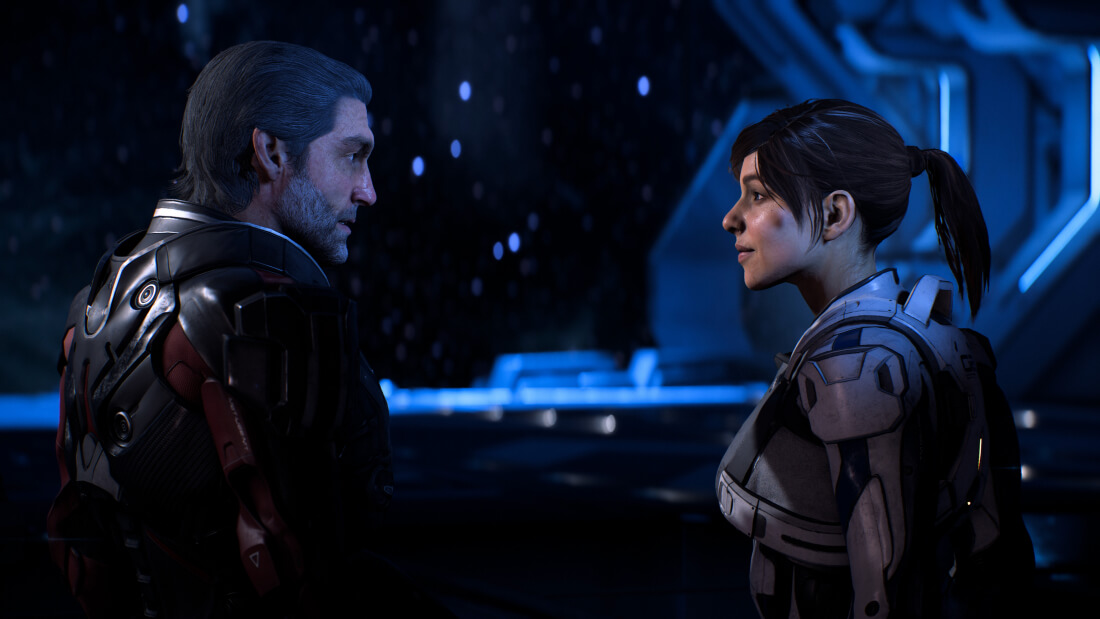
On PC, the developer recommends playing Mass Effect: Andromeda with either an Intel Core i7-4790 or AMD FX 8350, which is an odd contrast. Surely a lower-end Core i5 processor will suffice if they are recommending the FX-8350 and clearly these recommendations were made before Ryzen landed.
On the graphics side, it’s suggested that gamers arm themselves with at least a GeForce GTX 1060 3GB or GTX 970 — apparently you’re out of luck if you own a Radeon graphics card (kidding of course, something like the RX 470 should suffice since the GTX 1060 3GB is recommended).
By failing to mention a single AMD graphics card, it’s clear this is an Nvidia sponsored title, so you can expect the green team to have the upper-hand out of the gate. That said, AMD seems to be very much on top of the driver game right now and has already released an update.
AMD is claiming performance gains of up to 12 per cent on a Radeon RX 480 with an i7-6700K and 8GB of DDR4-2666 memory, a boost that supposedly sees frame rates go from 53.7fps to a much healthier 60.1fps at 1080p. Likely contributing to these performance gains, or at least a good chunk of it, is the added “Optimised Tessellation Profile” for the game.
As you’re likely aware at this point, I’m not here to review the game but to test its PC performance so you know how it will run on your hardware at home. Before getting to those results, let’s discuss how we benchmarked Mass Effect: Andromeda.
Testing Methodology
For testing we used the AMD Radeon Crimson Edition Graphics Driver 17.3.2 Hotfix for testing the Radeon GPUs and the Nvidia based GPUs were tested using the GeForce Game Ready Driver 378.78.
We benchmarked Mass Effect: Andromeda using our Core i7-7700K test machine which sees the processor running at 4.9GHz with 32GB of DDR4-3000 memory. The performance numbers you are about to see are based on a 60 second Fraps pass from the beginning of the single player campaign after the player-controlled character crash lands (falls) on Habitat 7.
Since Origin locks you out for 24 hours after five hardware changes (graphics card or CPU), testing was painfully slow and in the end I had to purchase three accounts so I could test 15 configurations per day for this performance review. Unfortunately, this meant I wasn’t able to do the usual CPU testing alongside the GPU benchmarks.
We focused our attention on the ultra-quality preset for testing and I have to say that the game looks phenomenal with these settings. We also tested three standard resolutions: 1080p, 1440p and 4K.
Test System Specs
- Intel Core i7-7700K (4.90GHz)
- Corsair Vengeance LED DDR4-3000 32GB
- Asrock Z270 Taichi (Intel Z270)
- Corsair RMx Series RM750x 750-watt
- Samsung SSD 850 Pro 2TB
- Microsoft Windows 10 Pro 64-bit
- Nvidia GeForce 378.78 WHQL
- AMD Crimson 378.78 ReLive
- Radeon RX 480 (8192MB)
- Radeon RX 470 (4096MB)
- Radeon RX 460 (4096MB)
- Radeon R9 Fury X (4096MB)
- Radeon R9 Fury (4096MB)
- Radeon R9 Nano (4096MB)
- Radeon R9 390X (8192MB)
- Radeon R9 390 (8192MB)
- Radeon R9 380X (4096MB)
- Radeon R9 380 (2048MB)
- Radeon R7 360 (2048MB)
- Nvidia Titan XP (12288MB)
- GeForce GTX 1080 Ti (11264MB)
- GeForce GTX 1080 (8192MB)
- GeForce GTX 1070 (8192MB)
- GeForce GTX 1060 (6144MB)
- GeForce GTX 1060 (3072MB)
- GeForce GTX 1050 (2048MB)
- GeForce GTX 1050 Ti (4096MB)
- GeForce GTX 980 Ti (6144MB)
- GeForce GTX 980 (4096MB)
- GeForce GTX 970 (4096MB)
- GeForce GTX 960 (2048MB)
- GeForce GTX 950 (2048MB)
Benchmarks: 1080p
Even with AMD’s recent driver update, the GTX 980 Ti still enjoys a serious performance advantage over the Fury X, delivering 24 per cent more frames on average. The 980 Ti looks very comfortable with a 71fps minimum while the Fury X dropped down to 54fps and the standard 980 slightly slower again at 53fps. It’s not often you see the GTX 970 beating the R9 390X with ease but that’s the current situation here.
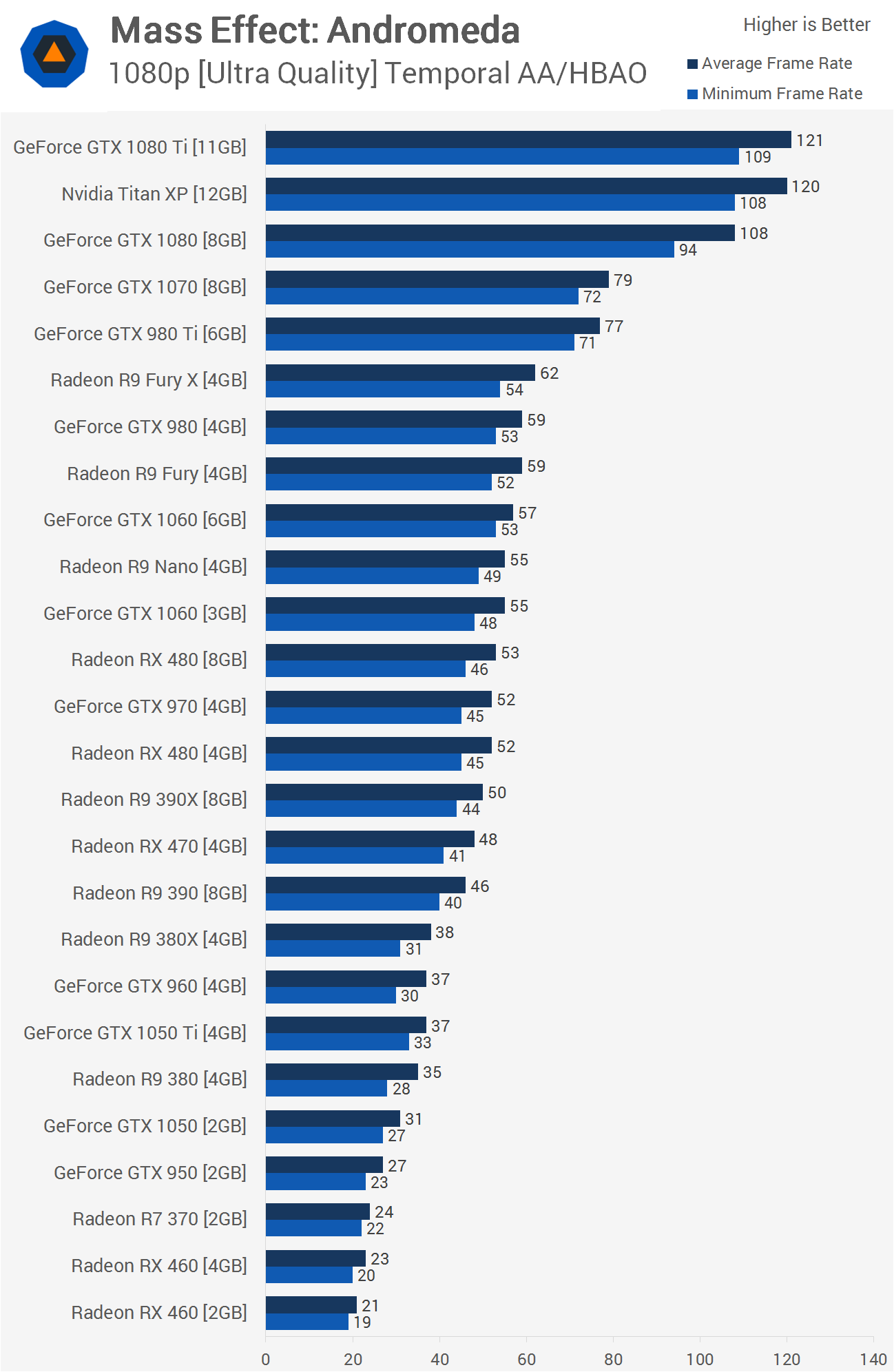
The same is true when comparing the R9 380 and GTX 960, the GeForce graphics card is a whisker faster here and just able to deliver playable performance at 1080p using the ultra quality settings. The same sadly can’t be said for the R7 370 and GTX 950 though.
The latest crop of GPUs offer more models capable of pushing over 60fps, as you might expect. The Titan XP and GTX 1080 Ti were good for over 100fps at all times and averaged around 120fps. The GTX 1080 was also respectable, often pushing frame rates above 100fps.
It was a rather large drop down to the GTX 1070 but even so, with almost 80 fps on average performance was impressive. The GTX 1060 6GB easily topped the RX 480 despite AMD’s recent driver update and here we see the RX 480 8GB delivering similar performance to the 1060 3GB.
We found that GPUs such as the RX 470 and GTX 1050 Ti were still able to provide playable performance at 1080p.
Benchmarks: 1440p
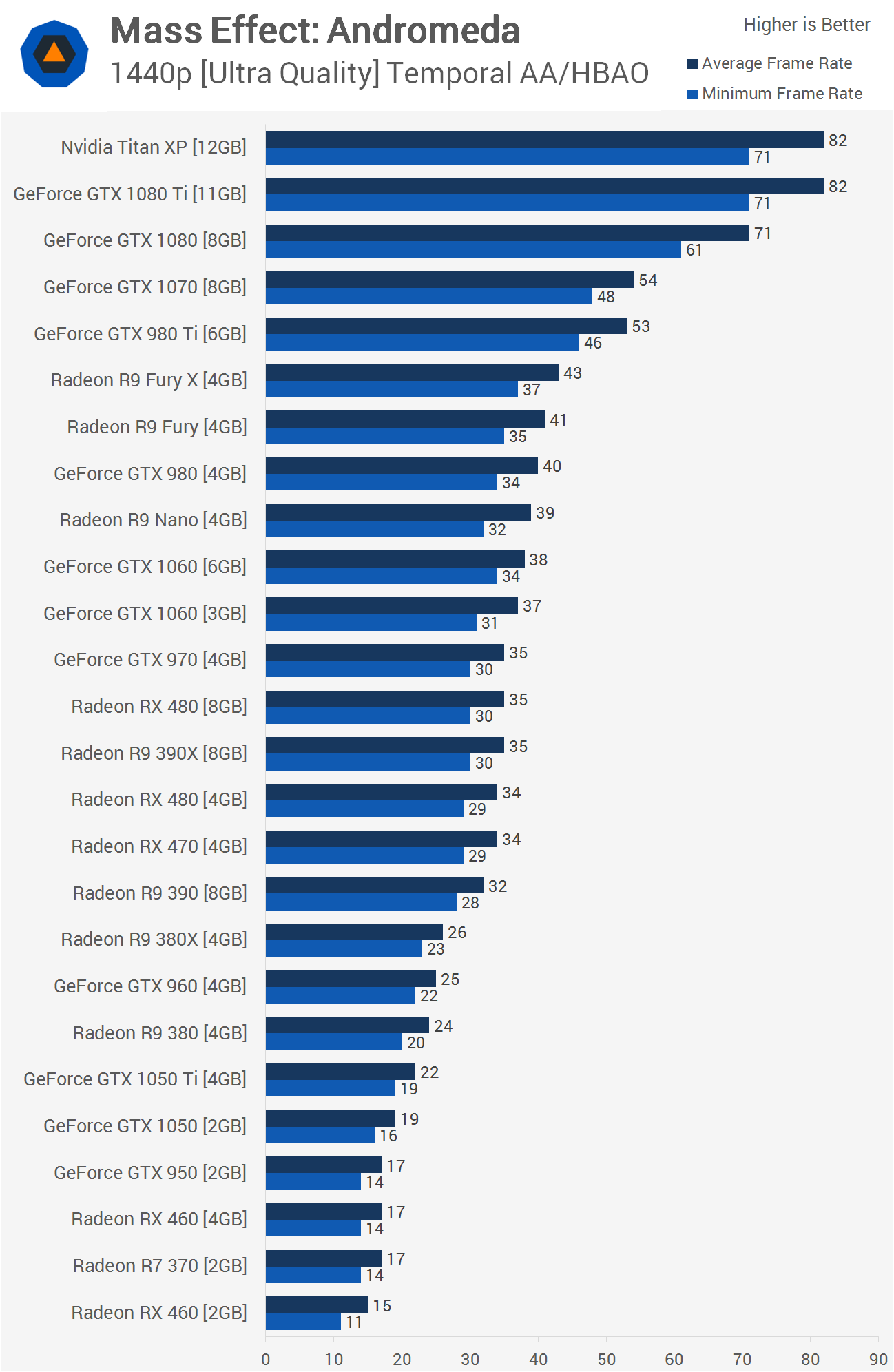
Pumping the resolution up to 1440p really hammers performance and now we are looking at just 53fps on average from the GTX 980 Ti with a 46fps minimum. Despite that, the 980Ti was still 23 per cent faster than the Fury X which averaged just 43fps. For a minimum of 30fps at 1440p with all the eye candy turned up, gamers will require an R9 390X or GTX 970.
We also see that you can achieve playable performance with the RX470, 4GB RX 480 and 3GB GTX 1060, if only just. Ideally gamers will want at least the GTX 1070 though we see a good argument for going with the GTX 1080 here as it provided 31 per cent more performance taking the average frame rate to 71fps. Again, the GTX 1080 Ti was just 15 per cent faster than the standard GTX 1080 and frankly I was hoping to see more from Nvidia’s new $1199 GPU.
Benchmarks: 4K
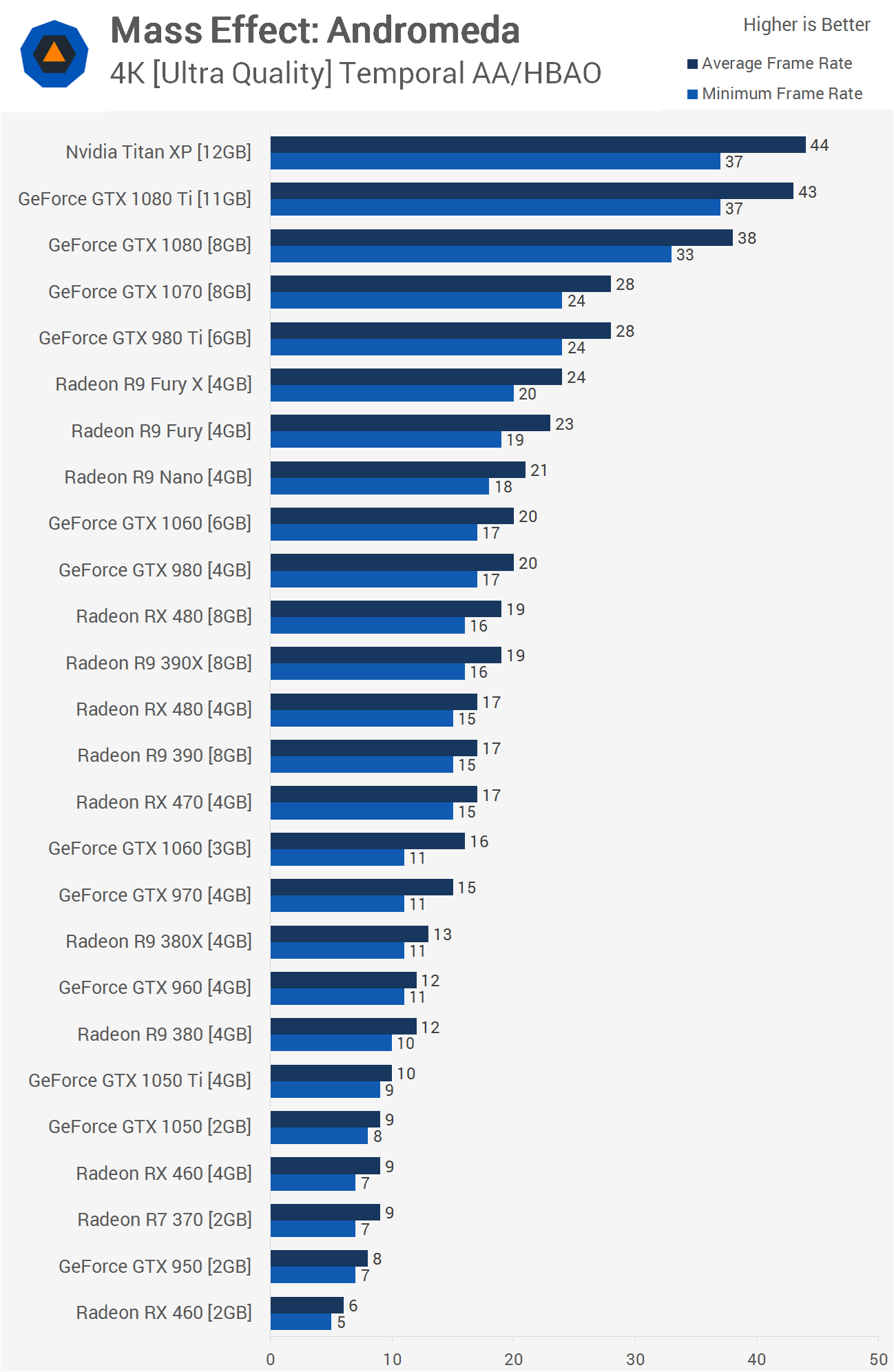
Given what we saw at the previously tested resolutions, it’s no surprise that even the GTX 980 Ti can’t deliver playable performance at 4K. Here we see an average of just 28fps with a minimum of 24fps.
Moreover, the GTX 1080 just gets by with a 38fps average and a 33fps minimum while the GTX 1080 Ti delivered just 13 per cent more performance, though the gains were noticeable here.
Final Thoughts
Ideally I would have liked to include some more tests such as quality scaling results for say the GTX 1060 and RX 480, but I simply ran out of time thanks to Origin constantly locking me out for 24 hours after swapping components. That being the case, I will aim to add the GeForce GTX 700 series and Radeon 200 series later this week followed by some CPU testing.
What we can tell you so far is that to enjoy Mass Effect: Andromeda with its best visual settings, you’ll require a powerful GPU, even if you plan to play at a resolution of 1080p. Here we really recommend nothing less than the Radeon R9 390 or GeForce GTX 970, though you don’t expect to see GPUs such as the RX 480 8GB coming in around the GTX 970. Once AMD further address these performance issues we might see lower-end GPUs such as the R9 380 delivering more acceptable performance here.
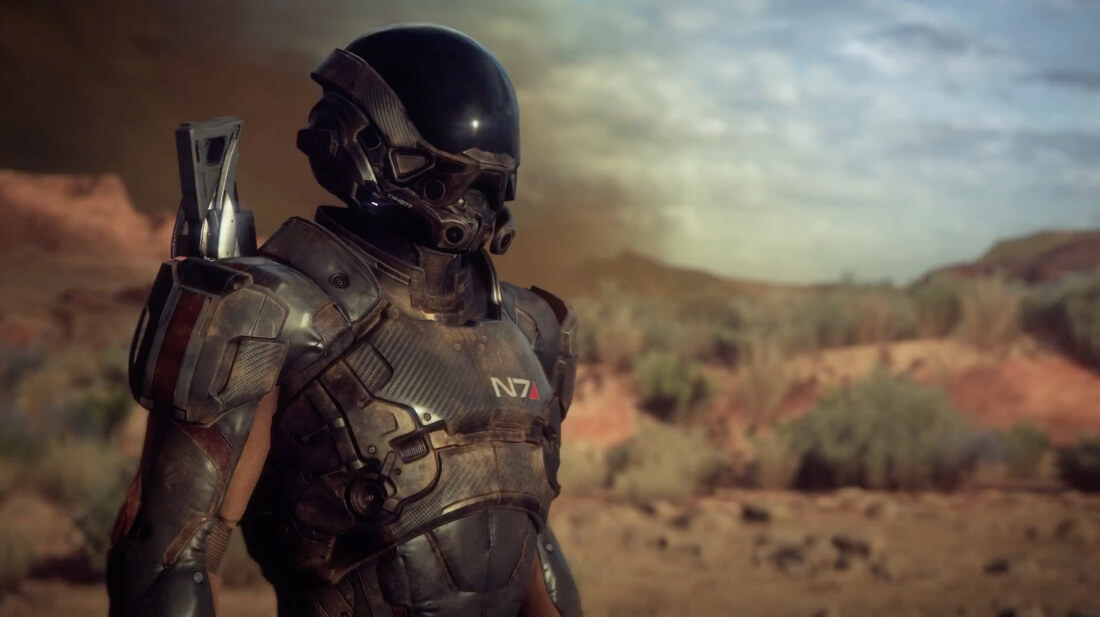
Those wanting to game at 1440p will need to bring some serious firepower — the Fury X for example still dipped below 40fps at times. The GTX 1070 or GTX 980 Ti are better picks here and for a constant 60fps+ you’ll need a GTX 1080.
To play Andromeda at 4K, you can expect to employ two high-end GPUs. Sadly though, neither SLI or Crossfire are working at the moment so even if you have invested in a pair of GTX 1080s, they won’t be particularly useful in this title yet. The good news is that multi-GPU support is coming, hopefully sooner rather than later.
Although we haven’t included processor results we can say that the game doesn’t seem too CPU-demanding, providing you have a decent quad-core chip. Utilization sat between 30 and 40 per cent for the most part on our overclocked Core i7-7700K test system. However, it’s worth noting that RAM usage was extremely high. Our system was configured with 16GB for testing and we constantly saw more than half of that allocated.
Overall, Mass Effect: Andromeda ran perfectly during our benchmarking procedures (no crashing and so on). The game’s visual quality is extremely impressive and the gameplay seems like a lot of fun. It’s a shame that the experience appears to be spoiled by poor animation.
Republished with permission from:

Steven Walton is a writer at TechSpot. TechSpot is a computer technology publication serving PC enthusiasts, gamers and IT pros since 1998.
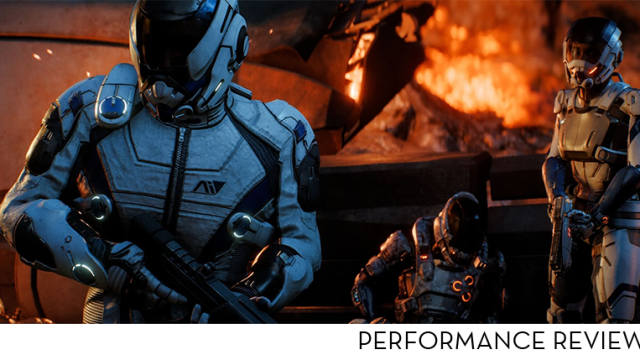
Comments
3 responses to “Mass Effect: Andromeda PC Benchmarked On 24 Different Video Cards”
Well I was tossing up between Xbox1 and PC but now im sold on PC,
Ditto. Just hope they get SLI support out very soon so I can use both 780 TI’s.
AMD GPU users, disable Temporal AA in game and user your Raedon Catalyst program to force Mass Effect to not use it. You can increase your frames from around 20 fps. You don’t really notice a dip in quality.
It’s probably something to do with Nvidia gameworks